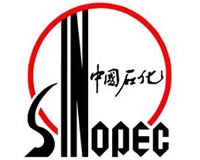 |
Sanaa, Yemen (UPI) Aug 27, 2009 As fighting escalates in Yemen between the army and Shiite rebels in the northwestern mountains along the border with Saudi Arabia, Riyadh is becoming increasingly alarmed that Iran is arming the insurgents and that its unruly southern neighbor is in danger of sliding out of control. The Saudis fear that the Yemeni government of President Ali Abdullah Saleh will be overwhelmed by the 5-year-old rebellion and other crises gripping the impoverished Arab state that lies at the southwestern tip of the Arabian peninsula. The rebellion is centered on Saada province, which borders Saudi Arabia, the world's leading oil producer, but is spreading southward. The Shiite tribesmen, followers of the Zaidi sect, want to revive the Islamic imamate that ruled for 1,000 years before being toppled by Sunnis in 1962. The Sanaa government also has to grapple with a new push for secession among southern socialists, who triggered a two-month civil war in 1994 in an abortive secession bid, and a resurgence of al-Qaida, which seeks to reignite a jihadist insurgency in Saudi Arabia. On top of all this, Yemen is in the grip of a 4-year-old drought. Its water resources, like its scanty oil reserves, are diminishing while its population swells at an explosive rate. The economy is facing collapse. "The events in Yemen are a matter of concern," Osama al-Nuggali, chief spokesman for the Saudi Foreign Ministry, said Aug. 18. "Yemen's security and stability are important to the region and to neighboring countries, including Saudi Arabia." The rebellion broke out in 2004. The Yemeni government, whose authority extends little beyond the capital and some cities, responded with military operations. Fighting invariably died out without any clear resolution, only to flare up again. The latest bout of fighting, the sixth, erupted Aug. 11 after a one-year cease-fire collapsed and Saleh launched an all-out offensive with the army's best troops with armor and artillery in a bid to crush the rebels once and for all. Yemen claims that Shiite Iran is arming the northern rebels. The army claims to have uncovered caches of Iranian-made weapons, including short-range missiles and machine guns, in the recent fighting. Iran denies it is aiding the Shiite tribesmen. But Tehran has a history of aiding militants across the region. These include the Shiite Hezbollah movement in Lebanon and Palestinian Hamas militants in Gaza. The Zaidi tribes claim the Sanaa government is dominated by hard-line Sunnis who follow the conservative Wahhabi branch of Islam led by the Saudis and which considers Shiites to be heretics. The rebels also oppose Saleh's alliance with the United States. The Saudis fear that the Zaidi rebellion will enflame their own restive Shiite minority, who dominate the kingdom's eastern provinces where its oil industry is centered. The Saudis succeeded in crushing a jihadist insurgency in 2003-07 and are concerned that al-Qaida fighters gathered in Yemen, who in an ominous move recently rebranded themselves as al-Qaida in the Arabian peninsula, will exploit the worsening chaos to rekindle jihad in the kingdom. The Yemeni rebels claim that Saudi Arabia has sent its air force to support Saleh's offensive, codenamed Operation Scorched Earth. The Saudis acknowledge only that they are "consulting" with Sanaa on the escalating battle. Yemeni officials deny any joint operations with the Saudis. But given the Yemeni government's repeated failure to crush the rebels since they rose up in late 2004, Riyadh may yet have to take more direct action to prevent Saleh's regime foundering. The United States, sparring with Iran for primacy in the region, is also showing concern at developments in Yemen, its ally in the war against the jihadists. On a wider canvas, the crisis in Yemen is taking place amid signs that the Red Sea and Horn of Africa region, where jihadist forces are also in action, is becoming a new arena of confrontation between Israel and Iran alongside the Levant and the Palestinian territories. Yemen is strategically located overlooking the chokepoint Bab el-Mandeb Strait at the southern end of the Red Sea, a key shipping and oil tanker route between the Arabian Sea and the Mediterranean. There have been unconfirmed reports that Egypt, which claimed in April it broke up a network of Iranian-backed Hezbollah agents seeking to attack the Suez Canal, is shipping ammunition to the hard-pressed Yemen military by air and sea -- with U.S. approval. Share This Article With Planet Earth
Related Links Powering The World in the 21st Century at Energy-Daily.com
 Iraq approves controversial Sinopec oil rights deal: report
Iraq approves controversial Sinopec oil rights deal: reportShanghai (AFP) Aug 26, 2009 Iraq has approved a deal that would see China's Sinopec Group acquire controversial oil rights in northern Iraq through its purchase of Swiss oil giant Addax Petroleum, Chinese media said Wednesday. Iraq has now recognised Addax's development of the Taq Taq oilfield in its northern Kurdish region, after first threatening to blacklist Sinopec for pursuing rights there without consulting ... read more |
|
| The content herein, unless otherwise known to be public domain, are Copyright 1995-2009 - SpaceDaily. AFP and UPI Wire Stories are copyright Agence France-Presse and United Press International. ESA Portal Reports are copyright European Space Agency. All NASA sourced material is public domain. Additional copyrights may apply in whole or part to other bona fide parties. Advertising does not imply endorsement,agreement or approval of any opinions, statements or information provided by SpaceDaily on any Web page published or hosted by SpaceDaily. Privacy Statement |